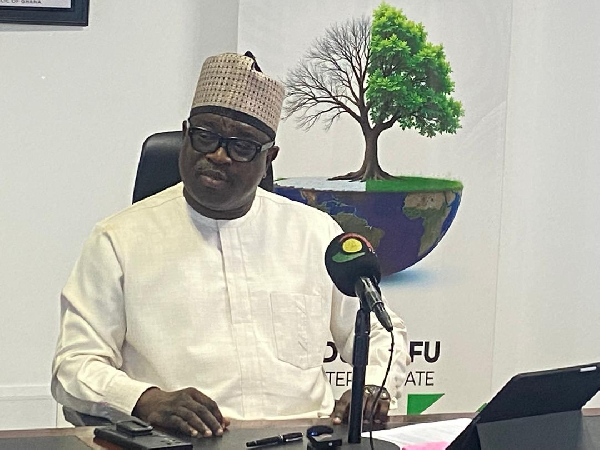Ghana’s Minister for Climate Change and Sustainability, Issifu Seidu, has issued a warning about the significant economic threat climate change poses to the country.
According to a recent report, Ghana risks losing approximately $550 million by 2050 due to floods, droughts, and other climate-related disasters. This report is based on the 2022 World Bank Country Climate Development Report and highlights the increasing vulnerability of Ghana’s economy to the effects of climate change.
The annual economic losses from droughts and floods are projected to rise from $195 million in 2020 to $550 million by 2050, presenting a significant challenge to the country’s economic development.
Climate change is expected to have extensive impacts on key sectors of Ghana’s economy, particularly agriculture, water resources, infrastructure, and health.
Minister Seidu made these statements during an engagement with the African Group of Negotiators Experts Support (AGNES) on Friday, July 11, 2025, at his office in Accra.
He emphasized the urgent need for stronger climate action, cross-sector collaboration, and accelerated investment in resilience infrastructure to mitigate the impacts of climate change.
Minister Seidu suggested establishing Climate Change and Sustainability Units within government ministries and district assemblies to improve coordination and monitoring efforts.
“We need to take urgent action to address the impacts of climate change on our economy and communities,” Minister Seidu stated.
Adding “This requires a concerted effort from the government, civil society, and the private sector to build resilience and promote sustainable development.”
The World Bank Group’s Country Climate and Development Report (CCDR) for Ghana indicates that adopting a climate-resilient and low-carbon pathway could generate over $26 billion in economic benefits by 2040.
The report underscores the importance of investing in green buildings, renewable energy, climate-smart agriculture, and energy efficiency improvements, developing sustainable cities, creating resilient infrastructure systems, and enhancing early warning systems, national financial preparedness, as well as adaptable health and social protection systems.
By taking proactive steps to address climate change, Ghana can reduce the risks associated with climate-related disasters, promote sustainable development, and build a more resilient economy.
Source: www.climatewatchonline.com












